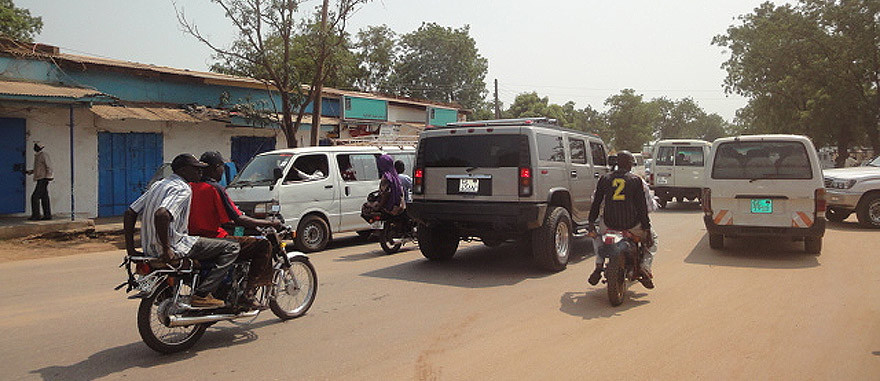Residents of Juba City are experiencing a transport crisis occasioned by the new stringent Covid-19 preventive measures announced by the South Sudan National Taskforce on Covid-19 last week.
Several commuters were stranded as there were very few public transport vehicles available to transport people from their residences to various locations in the city. The public transport operators are said to be on a go-slow and want to increase fares.
Among the new measures, buses and taxis are limited to carrying half their capacity, rickshaws to two passengers and boda-bodas to one passenger or cargo only.
Many Juba City residents, in an impromptu survey carried out by Radio Tamazuj, blamed the transport crisis on the new COVID-19 measures.
“The new directive by the government caused this problem. Drivers want to increase the prices but it would also be too much for the common citizen. So this is what happened today (Monday). There are a few commuter vehicles. Only about 10 percent of them are working, but 90 percent are on strike,” John Ajith, a public transport user said.
Arop Kuol Chol, another stranded commuter said: “Actually, you see people are suffering due to the shortage of transport. In the morning I came at 8 am and it took me till 10 am to reach my destination. The government should not just wake up and make decisions without consulting. The transporters are right. Instead of limiting the number of passengers in buses, the government should have said everyone should wear a mask when in public transport.”
Baraka, a commuter driver, said that the transportation crisis lies in the government's recent decision on Coronavirus in the country and revealed that the public transporters association is going to increase fares because of carrying half capacity and increase in fuel prices.
A lawyer, Larjor Meding, said he was stranded for a long time.
“Even the other time when there was a lockdown, transport prices went up and did not come back down. So they will repeat the same thing this time if the fares are increased,” Larjor said.
Radio Tamazuj tried to meet and talk to the president of the drivers’ union in Juba, Oliver Jamal, to find out the cause of the crisis, but he refused to comment on the matter.




